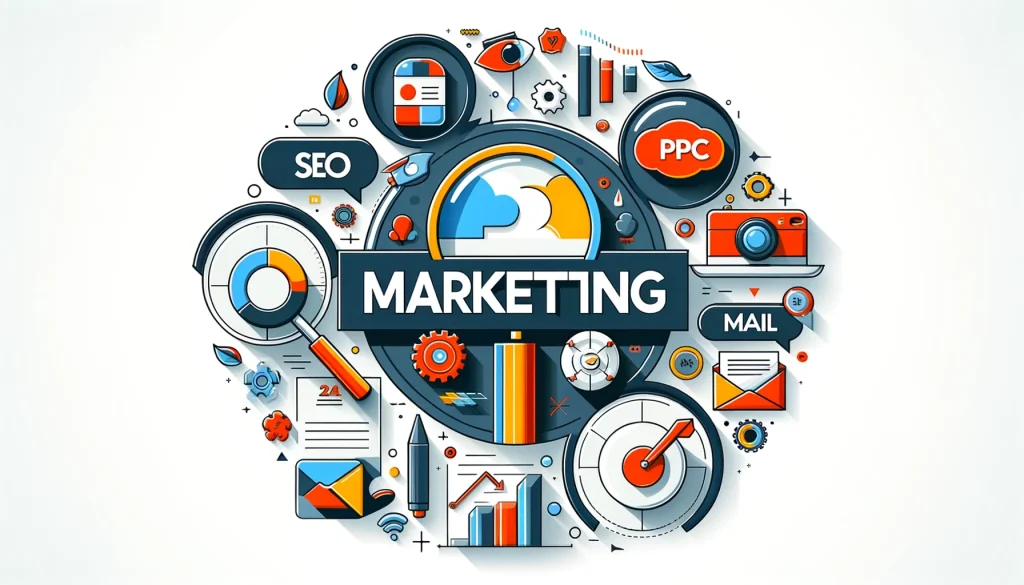The Impact of AI on Modern Marketing Strategies
Artificial Intelligence (AI) has swiftly transformed the marketing landscape, bringing innovative ways to reach, engage, and retain customers. With AI-powered tools now central to many campaigns, marketing strategies are more data-driven, personalized, and efficient than ever before. Let’s explore the key areas where AI is making a profound impact on modern marketing strategies.
1. Personalization at Scale
Personalization is no longer just a nice-to-have; it’s a necessity for effective marketing. AI enables brands to analyze vast amounts of customer data to deliver hyper-personalized content, products, and recommendations.
- Real-Time Recommendations: AI algorithms track user behavior in real-time, adjusting recommendations accordingly—think of Netflix’s movie suggestions or Amazon’s product recommendations.
- Dynamic Email Campaigns: AI-driven email marketing can customize content, offers, and timing for each recipient, significantly increasing open rates and conversions.
Result: A more engaging experience that resonates with individual customers, boosting loyalty and retention.
2. Enhanced Customer Segmentation
With AI, marketers can go beyond traditional demographics and segment their audiences based on behaviors, interests, purchasing habits, and more. This precise segmentation enables more effective targeting and higher conversion rates.
- Behavior-Based Segmentation: AI analyzes online interactions to create segments based on activity patterns, like frequent website visitors or users who frequently abandon carts.
- Predictive Analytics: AI uses past data to predict future behaviors, helping marketers anticipate which customers are likely to convert, churn, or respond to specific campaigns.
Result: Targeted campaigns that reach the right audience with the right message, maximizing ad spend and improving engagement.
3. Automating Content Creation and Curation
AI streamlines content creation, helping marketers generate relevant, high-quality material faster than ever.
- AI Writing Assistants: Tools like ChatGPT or Jasper help write blogs, social media posts, and even product descriptions, reducing time and resources for content teams.
- Automated Curation: AI can analyze user preferences and automatically recommend or curate content tailored to each user, enhancing engagement on platforms and apps.
Result: Efficient content production that maintains quality and relevance, keeping audiences engaged and informed.
4. Voice and Visual Search Optimization
With the rise of smart speakers and visual search tools, AI enables new search capabilities that require fresh marketing approaches.
- Voice Search Optimization: AI allows brands to optimize content for voice search, targeting questions users may ask their devices.
- Visual Search: Platforms like Pinterest and Google Lens use AI-powered image recognition to help users find similar products based on uploaded images.
Result: Improved discoverability on emerging search platforms, reaching users who rely on voice or visual cues to find information.
5. Chatbots and Conversational AI
AI-powered chatbots offer 24/7 support, answering questions, solving problems, and even guiding customers through the sales process.
- Instant Customer Support: Chatbots can resolve queries quickly, reducing wait times and improving the customer experience.
- Conversational Marketing: AI-powered bots can carry out sales conversations, answer product questions, and even make personalized recommendations.
Result: Enhanced customer experience, with quicker responses and a smoother path to purchase.
6. Predictive Analytics for Campaign Optimization
AI-driven predictive analytics helps marketers identify trends and make data-backed decisions for future campaigns.
- Trend Analysis: AI examines market trends and consumer behavior, helping marketers decide which products to promote, where, and when.
- Budget Optimization: AI can recommend how to allocate budget across channels for the best ROI based on past performance and predictive modeling.
Result: More effective campaigns that are timely, relevant, and yield higher returns on investment.
7. Improved Advertising Precision
AI has transformed digital advertising by enhancing targeting and optimizing ad placement based on real-time data and user behavior.
- Programmatic Advertising: AI can purchase ad placements in real-time, targeting users with the highest likelihood of engagement.
- Predictive Targeting: AI models predict which audiences are most likely to engage with an ad based on past behavior, refining targeting criteria continuously.
Result: Better ad performance and cost savings through precisely targeted and optimized advertising.
8. Enhanced Customer Insights through Sentiment Analysis
AI can analyze customer feedback, reviews, and social media conversations to gauge public sentiment towards a brand, product, or campaign.
- Social Listening: AI-powered tools monitor social media and forums to understand customer sentiment, identify pain points, and spot emerging trends.
- Sentiment-Based Adjustments: Marketers can adjust their strategy in real-time based on public response, ensuring messaging remains positive and resonates with the audience.
Result: A more adaptive approach that resonates with customers, building trust and enhancing brand reputation.
9. Streamlining Marketing Operations
AI can automate repetitive tasks, enabling marketing teams to focus on strategy and creativity.
- Task Automation: From scheduling posts to managing ad bids, AI handles routine tasks, allowing marketers to focus on high-level planning.
- Data Analysis: AI quickly processes large data sets, identifying trends and insights faster than manual analysis.
Result: Increased efficiency and reduced workload for marketing teams, allowing for faster decision-making and more innovative strategies.
Conclusion: Embracing AI for a Competitive Edge
AI’s impact on marketing goes beyond convenience—it’s a transformative force that reshapes how brands interact with and understand their audiences. By embracing AI-powered tools, brands can elevate personalization, refine targeting, and automate operations, paving the way for smarter and more efficient marketing. In a rapidly evolving digital landscape, those who adopt AI-driven strategies will lead the way in creating compelling, data-backed experiences that resonate with consumers.

